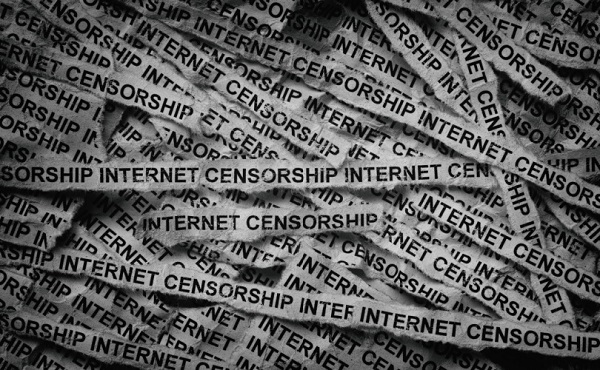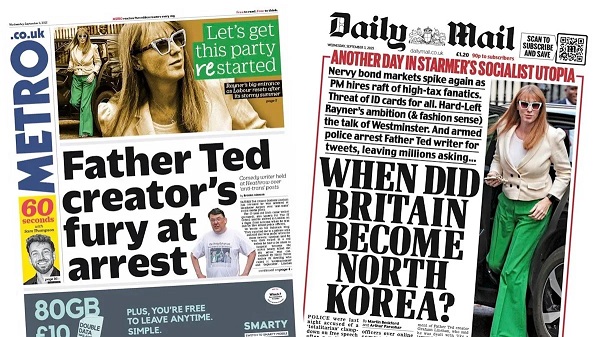Censorship Industrial Complex
Mark Zuckerberg Admits Biden-Harris Admin Pressured Facebook To Censor Content, Expresses Regret
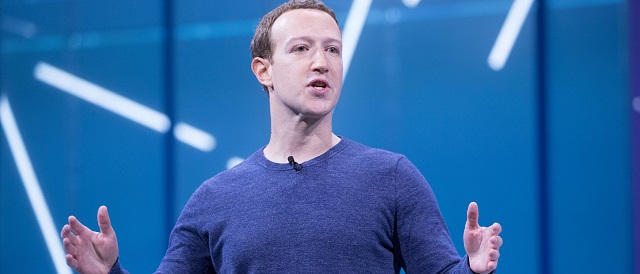
 From the Daily Caller News Foundation
From the Daily Caller News Foundation
Mark Zuckerberg expressed regret Monday that Facebook caved to pressure by the Biden-Harris administration to censor content.
Zuckerberg admitted in a letter to House Judiciary Committee Chairman Jim Jordan that senior Biden administration officials “repeatedly pressured” Facebook teams to suppress COVID-19 content that the platform otherwise would not have restricted, and expressed frustration when Facebook disagreed. Zuckerberg told Jordan he now feels strongly that the platform should not compromise its standards “due to pressure from any Administration in either direction.”
“I believe the government pressure was wrong, and I regret that we were not more outspoken about it,” Zuckerberg wrote. “I also think we made some choices that, with the benefit of hindsight and new information, we wouldn’t make today.”
Zuckerberg wrote that Facebook is “ready to push back if something like this happens again.”
Mark Zuckerberg just admitted three things:
1. Biden-Harris Admin "pressured" Facebook to censor Americans.
2. Facebook censored Americans.
3. Facebook throttled the Hunter Biden laptop story.
Big win for free speech. pic.twitter.com/ALlbZd9l6K
— House Judiciary GOP 🇺🇸🇺🇸🇺🇸 (@JudiciaryGOP) August 26, 2024
Zuckerberg also conceded in the letter that the platform should not have censored the New York Post’s Hunter Biden laptop story, noting the FBI had warned the platform “about a potential Russian disinformation operation about the Biden family and Burisma in the lead up to the 2020 election.”
“That fall, when we saw a New York Post story reporting on corruption allegations involving then-Democratic presidential nominee Joe Biden’s family, we sent that story to fact-checkers for review and temporarily demoted it while waiting for a reply,” he wrote. “It’s since been made clear that the reporting was not Russian disinformation, and in retrospect, we shouldn’t have demoted the story.”
Zuckerberg wrote that the platform “no longer temporarily demotes things in the U.S. while waiting for fact-checkers.”
The Supreme Court ruled in June that states and individual plaintiffs who challenged the Biden administration’s efforts to censor speech did not have standing because they could not establish a clear link between the government’s pressure and the platform’s actions.
“The plaintiffs rely on allegations of past Government censorship as evidence that future censorship is likely,” Justice Amy Coney Barrett wrote in the Murthy v. Missouri majority opinion. “But they fail, by and large, to link their past social-media restrictions to the defendants’ communications with the platforms. Thus, the events of the past do little to help any of the plaintiffs establish standing to seek an injunction to prevent future harms.”
Documents obtained from the lawsuit revealed the extent of the government’s efforts, which included the Center for Disease Control (CDC) flagging posts for removal and the White House asking companies to censor specific individuals over vaccine-related speech, including Tucker Carlson and Robert F. Kennedy, Jr.
Censorship Industrial Complex
Freedom of speech under threat on university campuses in Canada

From the Fraser Institute
By Michael Zwaagstra and Matthew D. Mitchell
Obviously, when students feel that their grades are at risk, they will be far less likely to express their genuine opinions or even ask questions during class discussions. Not only does this make classes less interesting, it also undermines the entire purpose of a university education.
Universities should be places where all ideas are welcomed and explored. In many Canadian university classrooms, however, only the “correct” viewpoint is heard.
According to a new survey (conducted by Leger and published by the Fraser Institute) of 1,200 Canadian university students and recent graduates, politically left-of-centre students were far more likely than their right-of-centre classmates to report that their views were welcomed and encouraged in class.
For example, 83 per cent of right-leaning students believe that professors advocate a left-of-centre view—and 45 per cent of left-leaning students agree with them.
Forty-two per cent of right-leaning students say they experienced a university classroom environment that limited discussion and questions on controversial topics to only one side of the argument. In contrast, only 29 per cent of left-leaning students felt the same way.
To make matters worse, 50 per cent of right-leaning students said they sometimes felt uncomfortable expressing their opinions due to the views of the professors leading the class. Only 36 per cent of left-leaning students reported the same experience.
Interestingly, when asked whether there was a “safe” point of view on controversial topics in university classes, a majority from both groups answered “yes” with little difference between right-leaning students (58 per cent) and left-leaning students (51 per cent).
A significant number of right-leaning students (37 per cent) also said they feared formal consequences for expressing honest thoughts, opinions or even asking questions in their classes. Among right-leaning students who expressed this concern, 74 per cent feared their professors would lower their grades for expressing the “wrong” opinion in class.
Obviously, when students feel that their grades are at risk, they will be far less likely to express their genuine opinions or even ask questions during class discussions. Not only does this make classes less interesting, it also undermines the entire purpose of a university education.
Other studies also reveal the politically one-sided nature of university campuses. For example, a 2022 survey published by the Macdonald-Laurier Institute found that 88 per cent of Canadian university professors vote for parties of the left and only 9 per cent support parties on the right. No wonder students feel their class discussions are consistently one-sided.
Similarly, a 2024 survey published by Heterodox Academy and College Plus found that more than half of students were reluctant to discuss certain issues such as the current Israel/Hamas conflict and transgender identity, and nearly half were reluctant to even broach the subject of politics. More alarmingly, a majority of students favoured limiting free expression on campus.
While many university professors are quick to describe themselves as strong supporters of diversity, this does not seem to include diversity of thought. A truly diverse campus would welcome a variety of intellectual perspectives in the spirit of open and scholarly debate. A campus where everyone looks different but thinks the same is not meaningfully diverse. As economist and philosopher John Stuart Mill argued many years ago, we are all impoverished when we silence one perspective.
It’s concerning that most students feel there’s a “safe” political view on controversial topics, particularly when students who hold a minority viewpoint feel the least safe expressing their views.
Of course, things won’t change overnight. But the first step to dealing with a problem is to admit that you have one. In that light, university administrators, professors and politicians should acknowledge that the current lack of viewpoint diversity on campus is a serious problem for all Canadians. Democracies function best when people freely express, and vigorously debate, competing ideas. As institutions of higher learning, universities should exemplify what free and open discussion looks like.
While there’s nothing wrong with professors holding political views and sharing those views with their students, they should not restrict free and open debate in their classrooms. This means ensuring that all students, including those whose opinions are in the minority, are guaranteed the right to share their views without fear of reprisal.

Matthew D. Mitchell
Censorship Industrial Complex
UK’s top cop wants to ‘stop policing tweets’: report
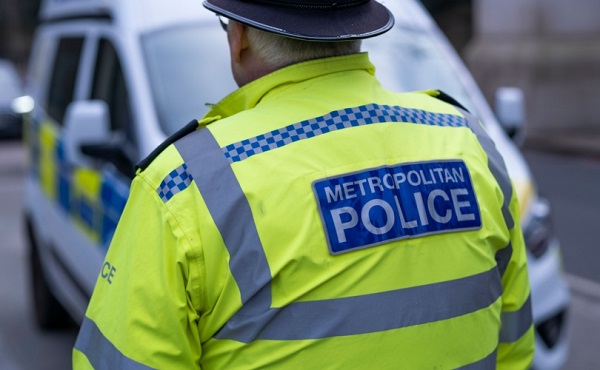
From LifeSiteNews
By Frank Wright
‘I don’t believe we should be policing toxic culture wars debates,’ said Sir Mark Rowley, chief of the London Metropolitan Police.
In a remarkable shift, Britain’s most senior police officer is to recommend changes to the law which could allow police to “stop policing tweets” within weeks.
Sir Mark Rowley, chief of London’s Metropolitan Police, said he will approach the Home Secretary with proposals which could see police return to policing real-life crime.
Sources close to Rowley told the UK’s Daily Telegraph:
He wants Shabana Mahmood, the new Home Secretary, to change the rules so police officers are not required to record or investigate complaints when there is no evidence the suspect intended real-world harm.
The change would be a remarkable departure from the crackdown on “non-crime hate incidents,” which have seen British people given sentences of several years for remarks made online.
Rowley’s move to change the law comes alongside the UK Labour government’s proposal to introduce digital ID – which could tie access to bank accounts and work to online speech.
Return to common sense policing?
The Telegraph’s source said Rowley “is proposing a shake-up of legislation that would give officers greater discretion to use ‘common sense’ when deciding whether to record and investigate complaints about comments on social media.”
The proposed change follows the arrest of comedy writer Graham Linehan, prompting the Metropolitan Police Chief to respond.
Responding to Linehan’s arrest, Rowley said on September 3 that a return to common sense was needed as a series of high-profile arrests over “non-crime hate incidents” was undermining public trust in the police.
He said the policies of successive governments had left the police in an “impossible position” over hate speech laws.
“I don’t believe we should be policing toxic culture wars debates,” Rowley added in a September 9 report, before claiming the police were not responsible for their actions.
“[O]fficers are currently in an impossible position. I have offered to provide suggestions to the Home Office on where the law and policy should be clarified.”
Telegraph journalist Allison Pearson, who was doorstepped by police last November for a tweet described as a “non-crime hate incident,” responded on September 9 by saying Rowley’s step towards defending free speech was “disingenuous” at best.
“At the risk of being arrested,” Pearson said, “I suggest Met chief Mark Rowley is a total muppet.”
Commenting on the recent arrest of comedian Graham Linehan for online speech, she added, “It is disingenuous in the extreme for the commissioner to say officers’ hands are tied in cases like that of Graham Linehan.”
Pearson explains that Linehan, famous for writing sitcoms, was arrested by five armed police after a “notorious trans activist” reported his tweets to police.
Rowley’s claim is that guidelines to police compel them to treat such appeals as crime reports, leaving no room for discretion.
Pearson then refers to the many real-life crimes to which British police do not routinely respond – even over decades:
It’s perfectly clear that the police have discretion to ignore complaints, even crimes, if they want to. Let’s see now:
Phone theft – ignored.
Shoplifting – essentially legal.
Carjacking – we’ll send you a crime number.
Burglaries – help yourself, lads!
Sexual harassment, child gang rape – er, sorry, cultural sensitivities.
Pearson concludes that the police chief is himself being dishonest – at best – in saying that speech crime laws tie the hands of officers.
For Sir Mark to claim that his officers were unable to use their common sense and ignore a complaint from a notorious trans activist about [Linehan] is to insult the public’s intelligence.
Baronness Winterbourne of the House of Lords responded, recommending that “[i]nstead of blaming Parliament for your officers’ inability to think for themselves intelligently, perhaps you might firmly tell them, please, to stop being stupid.”
En désespoir pic.twitter.com/Dm7XViTZ8s
— Emma Harriet Nicholson (@Baroness_Nichol) September 5, 2025
As the latest Telegraph report shows, government advice to police already exists – which has not prevented the policing of so-called “non-crime hate incidents.”
More than 13,200 non-crime hate incidents were recorded by police in the 12 months to June 2024, a similar number to the previous year, despite new guidelines requiring police to investigate only ‘when it is absolutely necessary and proportionate and not simply because someone is offended.’
Rowley was also recorded on a UK radio show defending the officers who carried out Linehan’s arrest.
Graham Linehan’s case is but one of many in which British people have been prosecuted for online speech. As the Free Speech Union reported in April 2025, new data showed that over 12,000 people in Britain are arrested for speech crimes every year.
Hitchens: Disband the police?
Peter Hitchens, a veteran conservative commentator and staunch Christian, spoke out on GB News – calling for the British police to be completely abolished and replaced.
Peter Hitchens calls for the police to be disbanded and rebuilt from scratch, accusing them of becoming 'a sinister menace to freedom of speech'.
'They’re not responsible for crime anymore. They’re a politically correct body who think they’re policing thought.' pic.twitter.com/EylPbMyviP
— GB News (@GBNEWS) September 10, 2025
Hitchens, a devout Christian, said the British police should be “disbanded” as they have become a “sinister menace to the freedom of speech.”
“They’re not responsible for crime anymore,” Hitchens explained. “They’re a politically correct body who think they’re policing thought.”
He told GB News’ Michelle Dewberry that “the police don’t believe they should be doing what we think they should be doing. They do believe they should be arresting people for incorrect tweets. The only solution is to disband them and start again.”
Elsewhere Hitchens argued this was no novel development, saying this “new style of policing” went back 20 years.
Two-tier Keir Starmer
The embattled Prime Minister Keir Starmer has long been accused of “two-tier” policing in cracking down on “far-right thugs” who commit online speech crimes.
As the murder of Charlie Kirk focuses attention on the toxic speech of the left, Britain’s justice system sees no evil when left-wingers call for the collective murder of people on the right.
Whilst former Conservative councilor Lucy Connolly received a 31-month sentence for an angry tweet about illegal migrants, a councilor for Starmer’s own Labour Party was found not guilty of incitement to violence after demanding that everyone he saw as “far right” be murdered.
Ricky Jones was declared innocent after publicly calling for his comrades to “cut the throats” of the so-called “disgusting Nazi fascists” who were protesting over the murder of children by a man of migrant heritage. Three girls were killed in Southport by a Rwandan youth last July. After stabbing the nine children in a frenzied assault, Axel Rudakubana told police, “It’s a good thing those children are dead.”
When angry protests broke out at the murders, Jones responded on video, saying of the so-called “far-right” protesters: “We need to cut all their throats and get rid of them all.”
Jones was freed, Connolly was jailed.
Talking of calls for violence,
Violent extremist RICKY JONES was released on bail until his trial in January despite the severity of his crime.
Protesters have been jailed for very minor crimes yet their vile ex Labour Party councillor gets totally different treatment.
This… https://t.co/XW4Oo2lB4R pic.twitter.com/7C2PtZL9kW
— Antifa Public Watch official (@UnmaskedAntifa) October 23, 2024
Despite the obvious dangers in preferring the policing of speech to genuine threats and crimes, there seems to be no cause for concern from the point of view of Britain’s prime minister.
During Wednesday afternoon’s questions, Sir Keir Starmer was asked whether he would commit to revising speech laws to “ensure legitimate free expression is protected.”
Starmer replied with a stock response: “I’ve been clear throughout, we must ensure the police focus on the most serious issues and the issues that matter most to our constituencies and all communities.”
He ended by saying he was proud of Britain’s long history of free speech, which he said he would always protect.
“And that includes tackling issues like antisocial behavior, knife crime and violence. And we have a long history of free speech in this country. I’m very proud of that, and I will always defend it.”
-

 Censorship Industrial Complex3 hours ago
Censorship Industrial Complex3 hours agoFreedom of speech under threat on university campuses in Canada
-

 Business3 hours ago
Business3 hours agoCarney engaging in Orwellian doublethink with federal budget rhetoric
-

 Energy3 hours ago
Energy3 hours agoCanada’s LNG breakthrough must be just the beginning
-

 Business4 hours ago
Business4 hours agoCourt’s ‘Aboriginal title’ ruling further damages B.C.’s investment climate
-

 Alberta2 days ago
Alberta2 days agoAlberta deserves a police force that actually reflects its values
-

 Crime2 days ago
Crime2 days agoCharlie Kirk Killer’s Ammo Reportedly Marked With Transgender, Anti-‘Fascist’ Messages
-
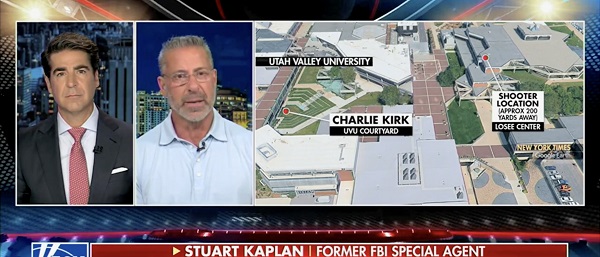
 Crime2 days ago
Crime2 days agoFormer FBI Agent Says Charlie Kirk Assassination May Have Been ‘A Professional Hit’
-

 Alberta2 days ago
Alberta2 days agoOPEC+ chooses market share over stability, and Canada will pay





